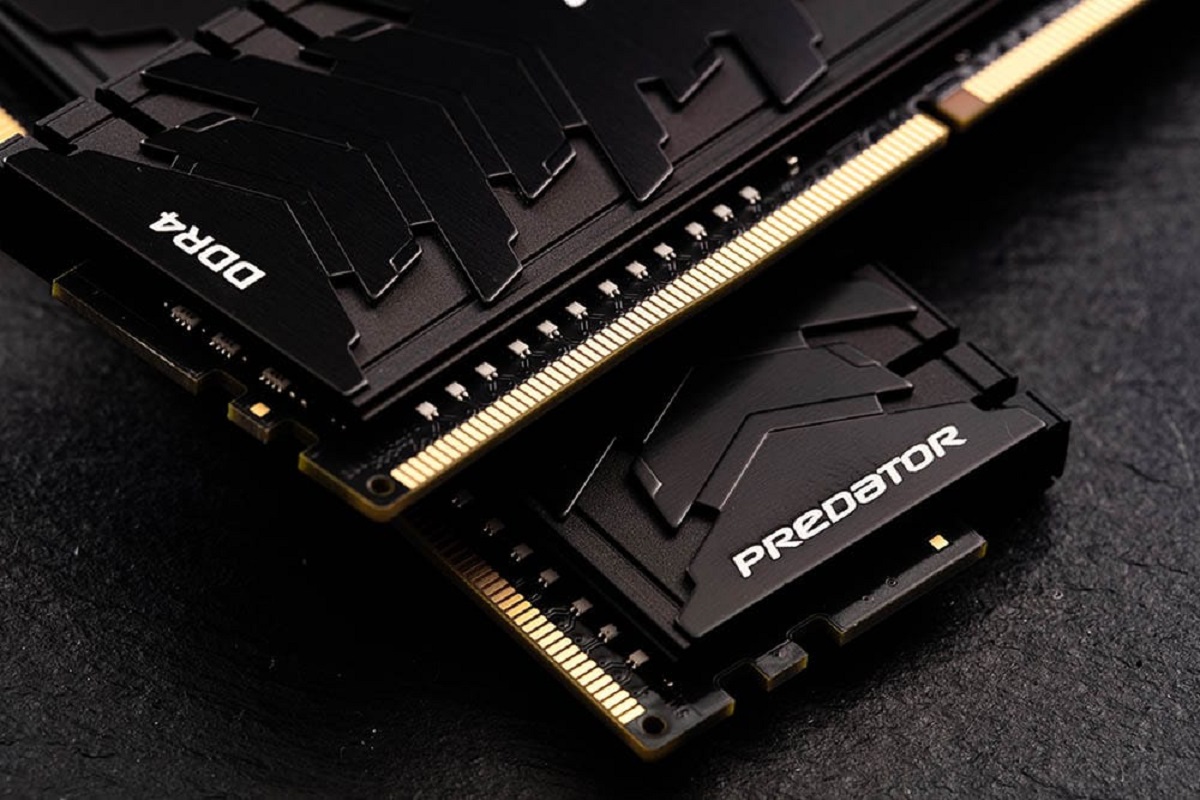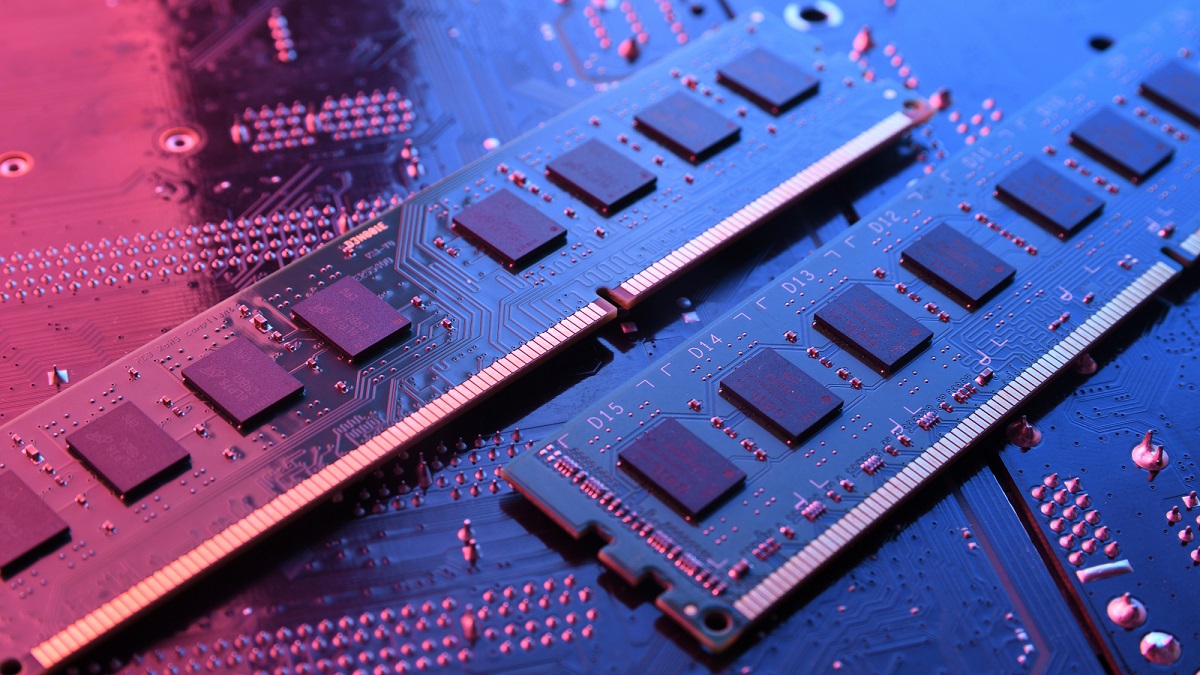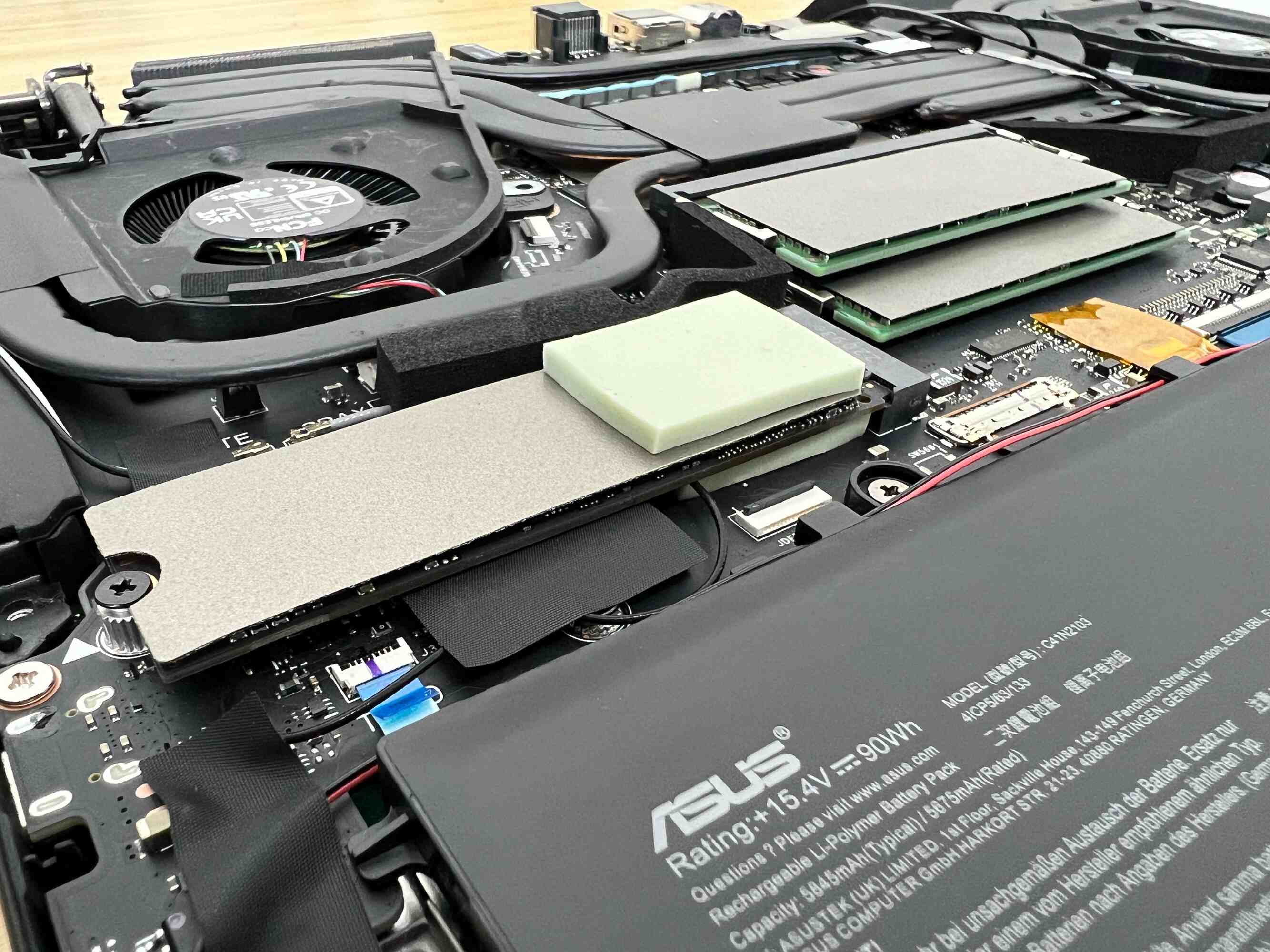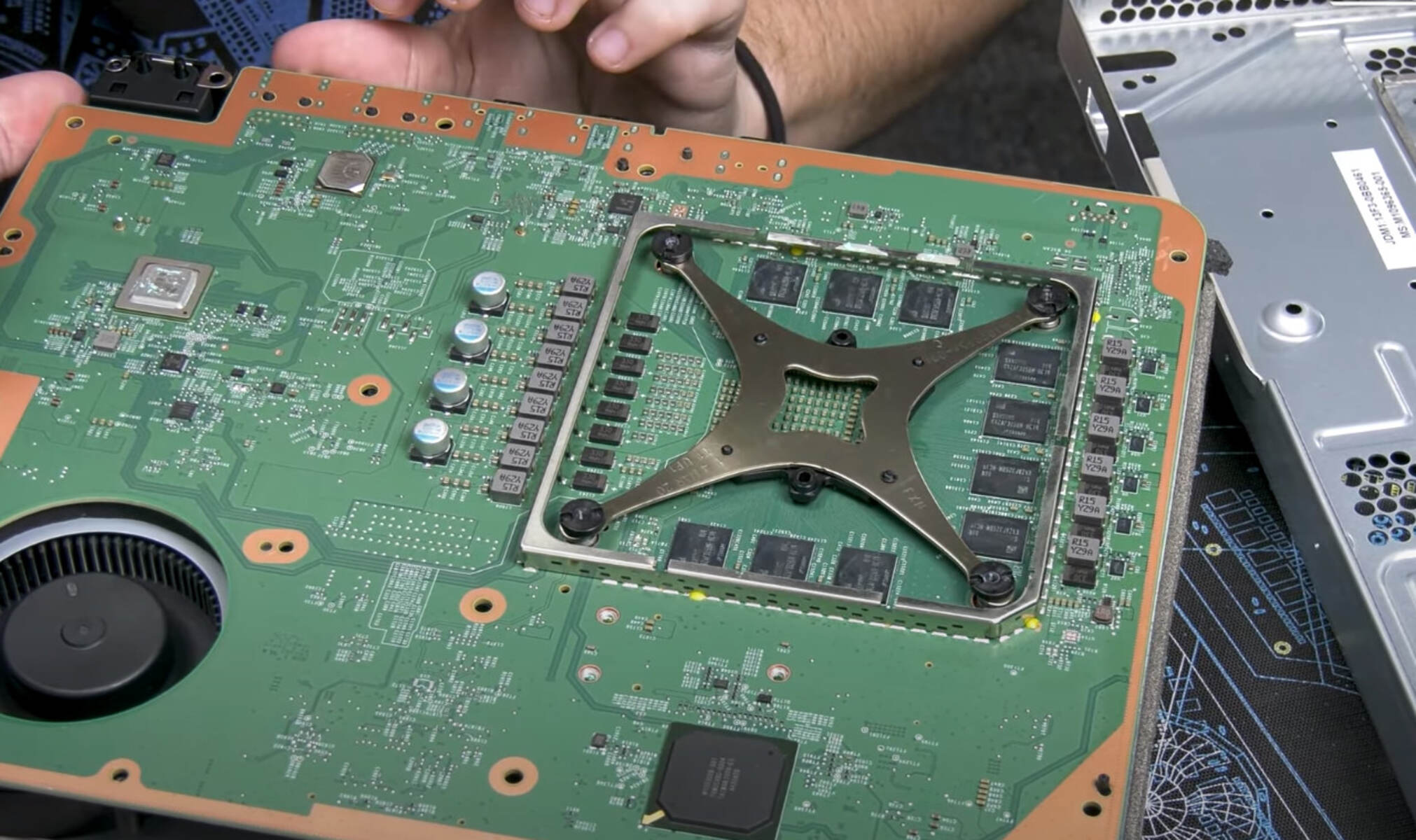Introduction
Welcome to the world of computer hardware, where every component plays a crucial role in ensuring the smooth functioning of your system. One such essential component is RAM, or Random Access Memory. Whether you’re a casual computer user or a hardcore gamer, understanding the significance of RAM and its impact on system performance is vital.
RAM acts as the working memory of your computer, providing quick access to data that is actively used by the CPU. It allows your system to multitask efficiently by storing and retrieving data rapidly. Without sufficient RAM, your computer may struggle to run multiple programs simultaneously or handle demanding tasks such as video editing or gaming.
If you’re in the market for RAM, you may be wondering just how much you need for optimal performance. And specifically, you might be interested in finding out the price of 16GB RAM, a popular choice among many users. In this article, we will delve into the world of 16GB RAM, discussing its importance, pricing, and factors to consider when purchasing this memory module.
Whether you’re upgrading your existing system or building a new one from scratch, knowing the ins and outs of 16GB RAM will help you make an informed decision. So let’s dive in and explore the world of 16GB RAM and how it can transform your computer experience.
What is RAM?
Before we delve into the details of 16GB RAM, let’s first understand what RAM is and how it functions in a computer system.
RAM, or Random Access Memory, is a type of volatile memory that allows a computer to store and quickly access data. It acts as a temporary workspace for the CPU, holding data that is actively being used or processed. Unlike the long-term storage offered by hard drives or solid-state drives, RAM provides quick and temporary storage that enables your computer to run programs and perform tasks efficiently.
When you launch a program or access a file, your computer transfers the necessary data from the storage drive to the RAM. This allows the CPU to access the data faster, resulting in quicker response times and smoother performance. Essentially, RAM serves as the bridge between your computer’s processing power and its storage capacity.
RAM is measured in gigabytes (GB), indicating the amount of storage space available. The more RAM your computer has, the more data it can hold and quickly access. This is particularly important when running resource-intensive applications or multitasking with numerous programs simultaneously.
It’s important to note that RAM is a volatile form of memory, meaning it requires a constant supply of electricity to hold data. As soon as your computer is powered off or restarted, the data stored in RAM is lost. Therefore, it’s crucial to save your work and files on a non-volatile storage drive, such as a hard drive or SSD, to retain them long-term.
Now that we have a basic understanding of what RAM is and how it functions, let’s explore the importance of this critical component in your computer system.
Why is RAM Important?
RAM plays a crucial role in determining the overall performance and speed of your computer. Here are a few key reasons why RAM is important:
- Improved Multitasking: When you have an adequate amount of RAM, your computer can efficiently handle multiple tasks simultaneously. It allows you to have multiple programs running in the background without slowing down your system. Whether you’re browsing the internet, streaming videos, or working on a document, having sufficient RAM ensures smooth and lag-free performance.
- Enhanced System Responsiveness: RAM helps reduce the time it takes for your computer to respond to your commands. With more RAM, your system can quickly load and access frequently used applications and data, resulting in faster response times and a more seamless user experience.
- Better Gaming Performance: If you’re a gaming enthusiast, you’ll appreciate the importance of RAM for a smooth gaming experience. RAM plays a crucial role in loading game assets, textures, and other data, allowing your computer to keep up with the demands of modern games. Insufficient RAM can lead to stuttering, lag, and overall subpar gaming performance.
- Efficient Resource Management: When your computer runs out of RAM, it compensates by using virtual memory, which involves storing excess data on the hard drive. However, accessing data from the hard drive is significantly slower than accessing it from RAM. This can lead to a decrease in overall system performance. Sufficient RAM prevents the need for frequent virtual memory usage and optimizes resource management.
- Future-Proofing Your System: As technology advances, software and applications become more demanding. Investing in a sufficient amount of RAM ensures that your system can handle future updates and advancements without requiring immediate upgrades. It’s a smart investment that ensures your computer remains capable and efficient in the long run.
Now that we understand the importance of RAM, let’s explore how much RAM you actually need for your specific requirements.
How much RAM do I need?
The amount of RAM you need depends on your specific usage requirements. Here are some factors to consider when determining how much RAM is suitable for your needs:
- Basic Tasks: If you primarily use your computer for basic tasks such as web browsing, email, and word processing, 8GB of RAM should be sufficient. This amount of RAM allows for smooth multitasking and ensures a responsive system.
- Content Creation: If you’re involved in content creation tasks like photo and video editing, 16GB of RAM is recommended. These tasks tend to be resource-intensive, and having more RAM allows for faster rendering and editing processes.
- Gaming: For gamers, the recommended amount of RAM varies depending on the type of games you play. Most modern games require at least 8GB of RAM, but for optimal performance and to future-proof your system, 16GB is often recommended.
- Virtualization and Heavy Workloads: If you frequently work with virtual machines or run resource-intensive applications like 3D modeling or data analysis software, 32GB or more is advisable. These tasks require a significant amount of RAM to ensure smooth performance and avoid bottlenecks.
- Future Proofing: It’s worth considering your future needs when deciding on the amount of RAM. If you plan to keep your computer for several years or anticipate increasing demands from software and applications, opting for more RAM can help future-proof your system and prevent the need for immediate upgrades.
It’s important to note that while more RAM can positively impact system performance, there may be diminishing returns beyond a certain point. For most users, 16GB of RAM provides a good balance between performance and cost-effectiveness. However, it’s always best to assess your specific needs and consult with experts if you’re unsure about the appropriate amount of RAM for your setup.
Next, we’ll explore the various factors that can affect the price of 16GB RAM.
Factors that Affect the Price of RAM
When it comes to the price of RAM, several factors can influence the final cost. Understanding these factors will help you make informed decisions and find the best value for your budget. Here are key factors that affect the price of RAM:
- Capacity: The capacity of the RAM module, measured in gigabytes (GB), plays a significant role in determining the price. As the capacity increases, the price tends to go up as well. For example, 16GB RAM modules will generally be more expensive than 8GB modules.
- Type and Speed: Different types of RAM, such as DDR3, DDR4, or DDR5, have varying prices. Additionally, the speed of the RAM, measured in megahertz (MHz), can impact the cost. Higher-speed RAM modules tend to be more expensive but offer better performance.
- Brand: The brand of the RAM module can also affect the price. Well-known and reputable brands may have higher price tags due to their reliability and performance guarantees. However, it’s worth considering that lesser-known brands may offer more affordable options without compromising on quality.
- ECC or Non-ECC: Error-Correcting Code (ECC) RAM, which detects and corrects memory errors, tends to be more expensive than non-ECC RAM. ECC RAM is commonly used in server-grade and professional applications where data accuracy is critical. For most consumer applications, non-ECC RAM is sufficient.
- Form Factor: The physical form factor of the RAM module, such as DIMM (Desktop) or SODIMM (Laptop), can impact the price. Laptop RAM modules are generally smaller and more specialized, which can make them slightly more expensive than their desktop counterparts.
- Availability and Demand: Supply and demand dynamics in the market can also affect the price of RAM. During times of high demand or when there are supply shortages, the price of RAM may increase. Conversely, prices may be lower when there is an oversupply or during seasonal sales.
It’s important to consider these factors and conduct thorough research before making a purchase. Take your specific needs and budget into account, and compare prices from different retailers to find the best deal for your requirements.
Now that we understand the factors that affect the price of RAM, let’s move on to discussing the average price of 16GB RAM.
Average Price of 16GB RAM
When it comes to the average price of 16GB RAM, it’s essential to consider various factors that can influence the cost. These factors include brand, type, speed, and sourcing. On average, the price of 16GB RAM can range from $60 to $200, depending on these factors.
One of the primary determinants of the price is the brand. Well-known and reputable brands tend to have higher price tags due to their established reputation and quality offerings. However, there are also affordable options available from lesser-known brands that can still provide reliable performance.
The type and speed of the RAM module also play a role in the overall price. DDR4 RAM modules, which offer faster speeds and better compatibility with newer systems, are generally more expensive compared to DDR3 modules. Similarly, higher-speed RAM modules, such as those with speeds of 3200MHz or beyond, typically come at a higher cost.
Another factor to consider is the sourcing of the RAM. Retailers or online platforms may offer different prices based on their supplier relationships, sales, or promotions. It’s a good idea to compare prices from different sources to find the best deal on 16GB RAM.
Additionally, the form factor of the RAM module, whether it’s DIMM for desktops or SODIMM for laptops, can also impact the price. Laptop RAM modules are generally smaller and more specialized, making them slightly more expensive compared to their desktop counterparts.
It’s worth noting that these price ranges are average estimates and can vary depending on the market conditions, regional availability, and any ongoing promotions. Prices can also fluctuate over time due to changes in technology and supply and demand dynamics.
Before making a purchase, it’s essential to research and compare prices from different retailers to ensure you are getting the best value for your money. Additionally, check for warranties and customer reviews to ensure the quality and reliability of the RAM module you choose.
Now that we understand the average price of 16GB RAM, let’s explore the pros and cons of using 16GB RAM in your computer system.
Pros and Cons of 16GB RAM
When considering the use of 16GB RAM in your computer system, it’s important to weigh the pros and cons to make an informed decision. Here are some advantages and disadvantages of utilizing 16GB RAM:
Pros:
- Improved Performance: One of the significant benefits of 16GB RAM is the potential for improved performance. With 16GB of memory, your system can handle resource-intensive tasks, such as gaming or content creation, without slowdowns or lag. It allows for smoother multitasking and faster data access, resulting in a more seamless user experience.
- Future-Proofing: Investing in 16GB RAM can future-proof your system to some extent. As software and applications become more demanding, having ample RAM ensures that your computer can handle future updates and advancements without requiring immediate upgrades.
- Enhanced Multitasking: With 16GB RAM, you can run multiple programs simultaneously without experiencing a significant impact on performance. This is particularly useful for users who frequently multitask or have demanding workflows that involve running several resource-intensive applications side by side.
- Improved Gaming Experience: Many modern games recommend 16GB of RAM for optimal performance. With 16GB, your computer can handle the demands of the latest games, ensuring smooth gameplay, faster loading times, and reduced texture pop-ins.
- Efficient Virtualization: For users involved in virtualization or running multiple virtual machines simultaneously, 16GB of RAM is beneficial. It allows for efficient resource allocation, ensuring smooth operation and avoiding performance bottlenecks.
Cons:
- Higher Cost: Compared to lower-capacity RAM modules, 16GB RAM can be more expensive. If you’re on a tight budget or your usage doesn’t require extensive multitasking or resource-intensive tasks, investing in 16GB RAM may not be necessary.
- Overkill for Basic Tasks: For users who primarily use their computers for basic tasks like web browsing, email, and word processing, 16GB RAM may be overkill. In such cases, 8GB or even 4GB of RAM can be enough to handle these tasks efficiently.
- Compatibility Limitations: It’s essential to ensure that your system’s motherboard and operating system support 16GB RAM modules. Some older systems may have limitations on the maximum RAM capacity they can handle. Be sure to check the specifications and requirements before purchasing 16GB RAM.
- Power Consumption: While the power consumption of RAM is generally low, larger capacity modules like 16GB RAM can consume slightly more power than smaller ones. This may lead to a slight increase in energy usage, albeit not significant for most users.
Considering these pros and cons will aid you in making an informed decision about whether 16GB RAM is the right choice for your specific needs. Next, we’ll explore where you can purchase 16GB RAM.
Where to Buy 16GB RAM
When it comes to purchasing 16GB RAM for your computer, several options are available to consider. Here are some popular sources where you can buy 16GB RAM:
- Online Retailers: Websites such as Amazon, Newegg, and Best Buy are reliable online platforms that offer a wide selection of computer hardware, including 16GB RAM. These sites often provide user reviews, product comparisons, and competitive pricing, making it convenient to find and purchase the right RAM for your needs.
- Computer Hardware Stores: Local computer hardware stores and electronics retailers often carry a range of RAM options, including 16GB modules. Visiting these stores allows you to consult with experts, ask questions, and physically examine the product before making a purchase.
- Manufacturer Websites: Many RAM manufacturers, such as Corsair, Kingston, Crucial, and G.Skill, have official websites where you can purchase their products directly. Buying from the manufacturer’s website ensures authenticity and may offer exclusive deals or promotions.
- Online Auctions: Platforms like eBay offer the opportunity to purchase both new and used 16GB RAM at potentially lower prices. However, exercise caution and thoroughly research the sellers to ensure you’re getting a genuine and reliable product.
- Computer Upgrade Services: If you’re not comfortable installing the RAM yourself, computer upgrade services or local computer repair shops can assist you. These services often provide various RAM options, including 16GB modules, and can professionally install the RAM in your computer for you.
When purchasing 16GB RAM, ensure that you check for compatibility with your specific system, including the motherboard and operating system requirements. Look for warranties, return policies, and customer reviews to ensure the quality and reliability of the RAM module you choose.
Additionally, comparing prices from different sources and considering any ongoing promotions or discounts can help you find the best deal. Don’t forget to factor in shipping costs, delivery times, and customer service reputation when making your final decision.
Now that we’ve explored where to buy 16GB RAM, let’s move on to some valuable tips for buying this memory module.
Tips for Buying 16GB RAM
When buying 16GB RAM for your computer, keeping the following tips in mind will help you make an informed decision and ensure a smooth purchasing process:
- Check Compatibility: Before purchasing 16GB RAM, ensure that it is compatible with your specific system. Check the motherboard specifications, supported RAM types and speeds, and maximum RAM capacity. This will ensure that the RAM module will work seamlessly with your computer.
- Consider Brand Reputation: Opt for reputable brands when buying 16GB RAM. Well-known brands often provide better reliability, performance, and customer support. Do some research, read customer reviews, and consider the brand’s track record before making a purchase.
- Choose the Right Type and Speed: Select the appropriate type of RAM for your system, such as DDR3, DDR4, or DDR5, based on compatibility and performance requirements. Additionally, consider the RAM speed, measured in megahertz (MHz), as higher speeds generally offer better performance.
- Consider Future Upgradability: If you anticipate future upgrades or expansions, consider the potential for adding more RAM modules in the future. It may be beneficial to choose a motherboard that allows for additional RAM slots or supports larger RAM capacities.
- Read Customer Reviews: Check customer reviews and ratings for the specific 16GB RAM module you are considering. These reviews can provide valuable insights into the performance, reliability, and compatibility of the RAM module, helping you make an informed decision.
- Compare Prices: Look for competitive pricing when purchasing 16GB RAM. Compare prices from different retailers, both online and offline, to find the best deal. However, be cautious of suspiciously low prices, as they may indicate counterfeit or low-quality products.
- Consider Warranty and Return Policies: Check the warranty and return policies offered by the seller or manufacturer. A good warranty ensures that you can receive support or a replacement in case of any issues with the RAM module.
- Be Cautious of Counterfeit Products: When purchasing from online marketplaces or lesser-known sellers, be vigilant regarding counterfeit RAM modules. Verify the authenticity of the product by checking the seller’s ratings, reviews, and conducting thorough research.
- Consult with Experts: If you’re uncertain about the right 16GB RAM module for your specific system or have any questions, seek advice from experts. Consult with computer technicians, local computer stores, or online communities dedicated to computer hardware to get valuable insights and recommendations.
By following these tips, you can confidently purchase the right 16GB RAM module that meets your requirements and provides the desired performance boost for your computer system.
Now that we’ve covered essential tips for buying 16GB RAM, let’s conclude our discussion.
Conclusion
16GB RAM is a highly versatile and popular choice for many computer users, offering a balance between performance, capacity, and affordability. Understanding the importance of RAM and how it impacts system performance is vital when considering the purchase of 16GB RAM.
In this article, we explored what RAM is and its essential role in a computer system. We also discussed why RAM is important and how it affects multitasking, system responsiveness, gaming performance, and resource management. Knowing your specific needs and usage requirements will help determine the suitable amount of RAM for your system.
We examined various factors that can affect the price of 16GB RAM, such as capacity, type, speed, and brand. Additionally, we provided insights into the average price range of 16GB RAM and highlighted the pros and cons of choosing this memory module for your computer system.
To ensure a successful purchase, we discussed where to buy 16GB RAM, including online retailers, computer hardware stores, manufacturer websites, online auctions, and computer upgrade services. It’s essential to consider compatibility, brand reputation, customer reviews, and pricing when making your decision.
We also provided valuable tips for buying 16GB RAM, such as checking compatibility, considering future upgradability, reading customer reviews, comparing prices, and being cautious of counterfeit products. Following these tips will help you make an informed decision and ensure a smooth purchasing process.
In conclusion, investing in 16GB RAM can significantly enhance your computer’s performance, allowing for smoother multitasking, faster data access, and improved gaming experiences. Assess your specific needs, research different options, and consider the factors discussed in this article to make the right choice for your computer system.
Whether you’re a casual user, content creator, or passionate gamer, 16GB RAM can provide the power and efficiency needed to maximize your computer’s potential. So go ahead and upgrade your system with 16GB RAM, and experience the difference it can make.

























